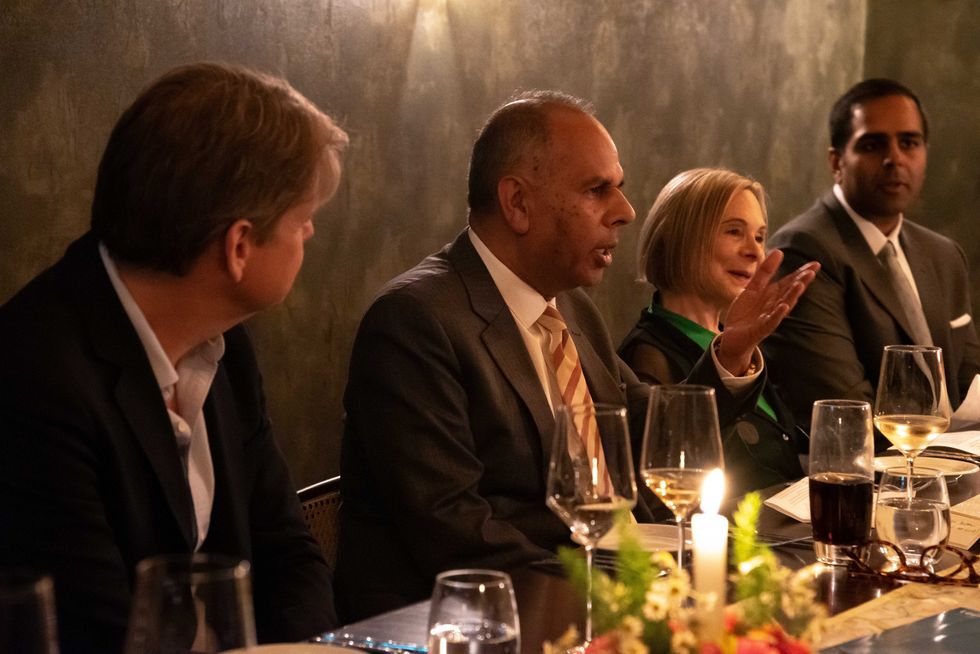At the height of apartheid, young South African lawyer Navi Pillay made history by securing better conditions for political prisoners incarcerated on the infamous Robben Island, including Nelson Mandela.
Today, at 81, the retired judge remains a feisty fighter for rights.
A bus driver's daughter who became a judge and later UN High Commissioner for Human Rights, Pillay is used to handling thorny issues.
She has built up a formidable reputation during a five-decade career that has taken her from South African courts to the International Criminal Tribunal for Rwanda.
Her latest assignment as the head of UN investigators probing abuses in Israel and the Palestinian territories has proven to be one of the most challenging.
But it has not broken the straight-talking jurist, thanks to the experience she gained during the fight against apartheid.
She chairs, on a voluntary basis, a three-person commission of inquiry created by the UN Human Rights Council to probe the root causes of the conflict between Israel and the Palestinians.
In a recent interview with AFP, she recalled being on the receiving end of the abuse she so ferociously fights.
A member of her commission was accused of anti-Semitism by several countries for criticising the "Jewish lobby". Pillay defended him.
'Moral high ground'
"I felt so offended when we were delivering our report," she said of the events of October 27.
"We were abused inside there by the Israeli ambassador (and others). They all said we are anti-Semites, we are Jew-haters."
"I'm 81 years old and this is the first time someone has called me anti-Semite," she said. "It would be funny if it was not so absurd".
The rights guru who prides herself for delivering "ground-breaking jurisprudence" was more emboldened after the UN accepted the report.
"We stand on moral high ground. The world supports us. They are highly critical of what Israel is doing on Palestine... That's why I feel we are triumphant," she said.
It was Pillay's upbringing in an unjust society that spurred her fight against discrimination everywhere.
"We put up with the worst," she said of the apartheid era, when people like her were "abused and treated like dirt".
That could have made you "weak and cry" or "fight every step of the way". She went for the latter.
"So I always had a sense of confidence about who I am and how you confront any kind of discrimination. Open your mouth and speak up, condemning it. And that's what I did in the UN," said Pillay sternly.
'Really hurtful'
Born in Durban in 1941 to a family of Tamil descent, Pillay grew up in a poor district of the city.
She studied law, obtaining a masters and doctorate at Harvard.
The first non-white woman to set up a law firm in KwaZulu-Natal province during white minority rule, Pillay carved out a reputation as a doughty defender of anti-apartheid activists.
In 1973 she won the right for political prisoners at the notorious Robben Island jail to have access to lawyers.
A year after Mandela became president of South Africa, she became the first woman of colour to be appointed to the country's high court.
Shortly after, Mandela recommended her to serve on the UN tribunal trying Rwandan genocide suspects, arguably one of the highlights of her career.
The panel of judges she served on delivered a landmark ruling that led to the recognition of rape as a perpetuation of genocide.
She says she served on that tribunal to provide "justice for Rwandans".
In 2008 she was appointed UN High Commissioner for Human Rights, a role she held until 2014, and is now head of the International Commission Against the Death Penalty.
She has openly condemned Arab governments for cracking down on popular protests, including in Libya and Syria.
Commenting on her own country, Pillay said it had a good constitution but needed competent people to run it.
"It's really hurtful to see how bad the situation is," she said. "So much looting of our taxpayers' money."
(AFP)




















 The event was hosted by Kalpesh Solanki, Group Managing Editor of Asian Media Group and President of the 100 Club.
The event was hosted by Kalpesh Solanki, Group Managing Editor of Asian Media Group and President of the 100 Club.